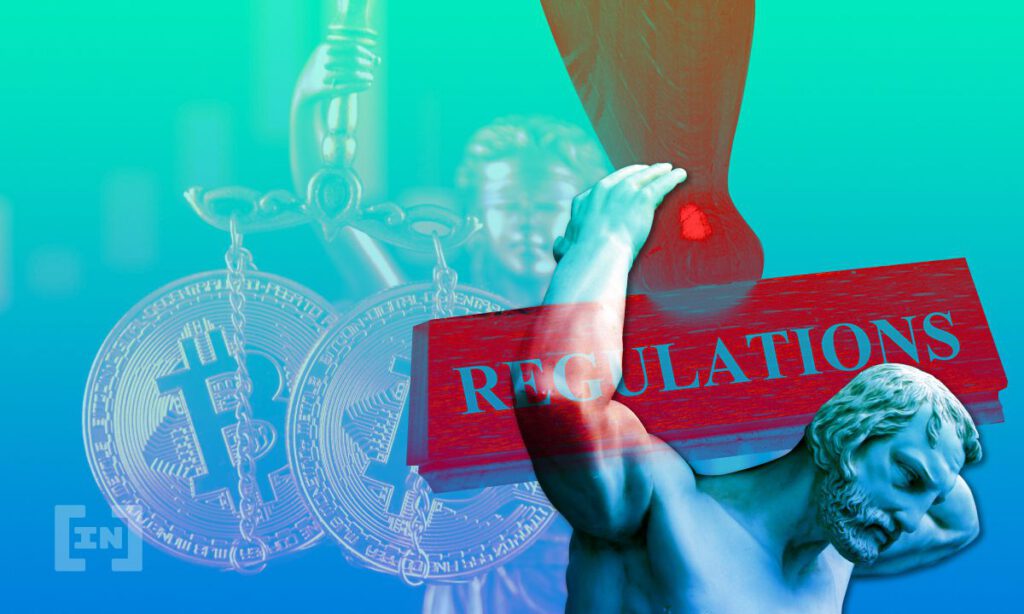Regulation: Government regulatory agencies mostly remain skeptical about the crypto sector’s ability to efficiently regulate itself, says Justin Hartzman, CEO and Co-Founder of CoinSmart.
Regulators around the world have been busy developing various approaches to crypto regulation, with some of them having ended up attempting to ban crypto entirely. Such an attitude can hardly be considered efficient enough to manage the risks identified if there is simply no means to do it. The digital asset and blockchain sector continues to evolve, adding more products and services, so it cannot be ignored.
Is crypto involvement in crime still an issue?
The cryptocurrency industry is nascent, so regulators are confused when it comes to the development of standardized compliance practices.
Since digital asset transactions are anonymous or pseudo-anonymous, financial authorities are concerned about cryptocurrency involvement in criminal activities and sanction evasion. Add to the mix limited legislative frameworks and poor expertise. Then, it becomes crystal clear that legislators cannot fully embrace the digital asset industry’s needs and risks, without close cooperation with crypto businesses.
Meanwhile, the volume of illicit activities involving cryptocurrencies has declined as a percentage of overall volumes, falling from 0.62-0.65% in 2020 to 0.10-0.15% in 2021.
It would be improper to deny or diminish the significance of the achievements the crypto industry has made in terms of the prevention and fight against crimes and other offences related to the usage of digital assets.
Self-regulation is a must
Global governments and financial authorities are struggling to come up with a consensus in regard to digital asset and blockchain regulation. But the crypto sector itself is making significant strides in this direction. To establish user trust, crypto companies have been working on relevant solutions. This is in a bid to make the industry more transparent and reliable.
Back in 2019, the Japan Cryptocurrency Business Association released its recommendations on initial coin offering regulation. It elaborated on crypto expansion in local exchanges and definitions of utility and security tokens, as well as their regulation.
In order to promote higher standards of conduct in the United Kingdom, a self-regulatory association called CryptoUK was launched in 2018. The organization works directly with policymakers and industry stakeholders. This is to educate them about the digital asset industry and develop a balanced framework for the UK.
Regulation and TRUST
Among such initiatives, there is also the Travel Rule Universal Solution Technology (TRUST). This is led by American crypto exchange Coinbase. It was launched with the support of trading platforms Kraken, BitGo, Winklevoss twins-backed Gemini, and Fidelity. TRUST takes measures to reduce money laundering by ensuring that members are compliant with the travel rule while protecting user data.
With only five members at the start, TRUST has now signed in more than 30 companies. These include crypto wallet providers, brokerages, exchanges, and custodians. They are committed to fighting money laundering in cryptocurrency transactions. This clearly shows the industry’s devotion to making it a safer place.
The organization is now active in Canada and CoinSmart recently joined TRUST to boost its anti-money laundering (AML) efforts. In addition to being active in Canada, the US, and Singapore, the organization is planning to expand to the European Union.
On the other side of the world, the Korea Blockchain Industry Association presented a development paradigm aimed at improved self-regulation. This is following multiple hacks that affected crypto users, at the time.
That said, Korean crypto exchanges would allow users to trade cryptocurrencies only after their identity is confirmed by traditional financial institutions. Similar to the TRUST project, the measures are expected to bring more transparency in crypto trading and ensure user protection.
Moreover, the top five crypto trading platforms in South Korea have just confirmed the creation of a joint consultative body. It consists of market surveillance, transaction support, and compliance monitoring departments. The general objective of the body is to establish and improve the standards in the industry.
Healthy partnership with financial regulators
The more trading platforms and custodians join such initiatives, the better compliance in the crypto industry exists. The rules require that exchanges share certain personal information about the sender when they request a transaction over a certain amount. This information is sent to another exchange or financial organization, while not storing any user data.
Self-regulatory organizations in the crypto industry have the potential to significantly increase measured regulation. They could be overseen by government regulators like the Security and Exchange Commission and Financial Industry Regulatory Authority.
What’s more, it would allow crypto and blockchain projects to focus more on innovation, as a high level of uncertainty would be eliminated.
Unlike heavy regulation coming from government bodies, such an approach would involve continual knowledge and expertise exchange. This would ensure that future regulation is developed and introduced that takes into account businesses’ needs in a fast-evolving sector. Simply put, the crypto industry would have a voice.
About the author

Justin Hartzman is the CEO and Co-Founder of CoinSmart (NEO: SMRT) (FSE: IIR), a leading Canadian publicly-traded and regulated crypto trading platform, dedicated to making cryptocurrency accessible to all. Justin has led numerous companies from start-up stage to successful exit, including All You Can Eat Internet and WeSellYourSite.
Got something to say about regulation of cryptos or anything else? Write to us or join the discussion in our Telegram channel. You can also catch us on Tik Tok, Facebook, or Twitter.
Disclaimer
All the information contained on our website is published in good faith and for general information purposes only. Any action the reader takes upon the information found on our website is strictly at their own risk.


